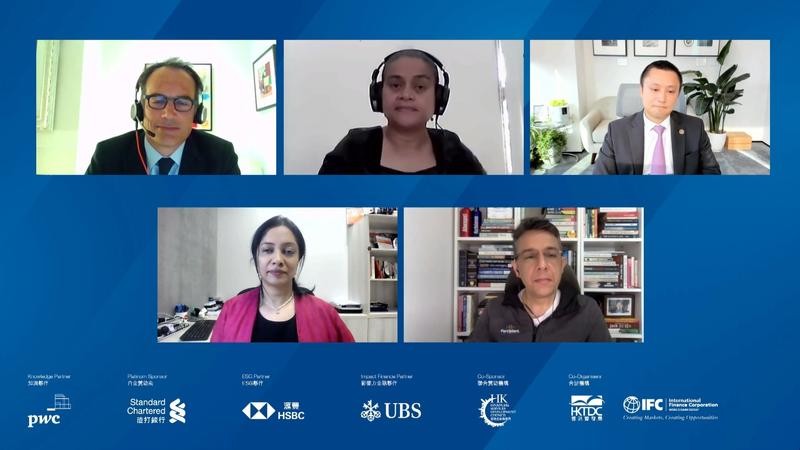2021-01-19
Yang Han

The COVID-19 pandemic has spurred innovation and transformation in the banking industry, providing the sector an opportunity to promote financial inclusion through digital services and products, leading industry experts said on Jan 19. "Financial technology has created significant opportunities for the unbanked population around the world," said Alfonso Garcia Mora, vice-president for Asia and Pacific at the International Finance Corporation. The pandemic, he said, has further increased the use of digital channels and accelerated the innovation of disruptive solutions, especially digital banks. Garcia Mora made the remarks while moderating a panel session titled "Accelerating Digital Financial Inclusion During COVID-19 – The Case for Digital Banks", held on the second day of the 14th Asian Financial Forum. Under the theme "Reshaping the World Economic Landscape", the forum brought together more than 160 high-profile speakers from around the world. Over 5,000 people from some 70 countries and regions participated in the online event co-organized by the government of the Hong Kong Special Administrative Region and Hong Kong Trade Development Council. Noting digital financial services are now available in more than 100 countries, Garcia Mora said that "many countries in the Asia Pacific region are encouraging the growth of digital banks and products, and fully digital banking services are also operational in a number of countries". In Tonga, a Pacific island nation, Leta Kami, CEO of the Tonga Development Bank, said the bank’s innovative cashless remittance service, launched in New Zealand and Australia, has received good feedback. "The Kingdom of Tonga is highly dependent on remittances," said Kami, adding Tonga is one of the world's highest recipients of remittance flows with remittances accounting for about 38 percent of its GDP. "With the pandemic hitting us all by surprise last year, we have gained more traction with the diaspora (as) they were looking for online digital banking (services) to support them during border closures and lockdowns," said Kami. Rama Sridhar, executive vice president of MasterCard’s Digital and Emerging Partnerships and New Payment Flows unit in Asia-Pacific, said partnerships of all players, including both the traditional and digital financial service providers, will be a significant enabler of the success of financial inclusion. Noting Mastercard aims to bring 1 billion people and 50 million micro- and small businesses into the digital economy, Sridhar said building partnerships will be critical to realize the goal. She said this is especially important when it comes to financial inclusion access to credit in order to ensure even the smallest micro-entrepreneurs seamless access to the service. Sebastian Paredes, CEO of DBS Bank (Hong Kong), said the bank has received about 1,400 requests to open an account within a month after it launched a digital banking service last year for SMEs (small and medium-sized enterprises). In a panel session titled "Dialogues for Tomorrow: The Future of Banking", Paredes said SMEs have been among the hardest-hit sectors around the world. "In Hong Kong, more specifically, because the travel of tourists from the Chinese mainland has completely stopped, and being an international financial center with very deep linkage with the Chinese mainland (in trade), the (local) economy and the SMEs have been particularly suffering," said Paredes. He said Hong Kong has around 340,000 SMEs which represent 98 percent of the city's total business community. In a panel session on "The Future of Digital Currency", Bank of China Chief Scientist Guo Weimin showed the audience a digital yuan hard wallet, also called a digital currency chip card, used in a large-scale test of China's official digital currency in Beijing at the end of last year. "The feasibility of digital currency has been proved in many scenarios," said Guo. "With the increasing support from the central bank and local governments, it will receive wider acceptance." Noting many discussions have been held over the costs of digital currencies, Guo said the key focus on the new technology should be its effectiveness, especially in terms of the traceability of money flows. Alexis Ohanian, co-founder of Reddit and Seven Seven Six, also noted the technology acceleration with businesses, especially rhino ones that are planning for IPOs. Besides, he told a keynote session on Jan 19 that there will be huge opportunities for travel and food sectors this year. The forum also covered such topics as asset management, responsible investment and alternative investments in art and wine. It also offers business showcasing, networking and matchmaking services through its virtual platform, allowing global startups, project owners and investors to connect online.